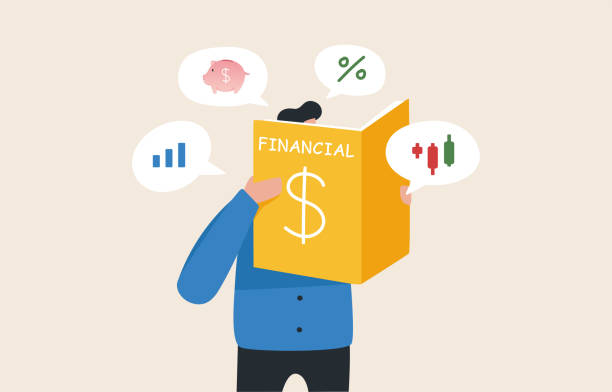Managing multiple loans can be challenging, especially when juggling different interest rates, repayment schedules, and lenders. Loan consolidation is often presented as a solution to simplify this financial complexity, allowing borrowers to combine multiple debts into a single loan with one monthly payment. While it sounds appealing, consolidating loans isn’t a one-size-fits-all solution and comes with its own set of advantages and drawbacks.
If you’re considering loan consolidation, understanding its pros and cons will help you make an informed decision. Here’s a comprehensive guide to the benefits and potential pitfalls of consolidating multiple loans.
What is Loan Consolidation?
Loan consolidation involves merging multiple loans into a single loan with a unified interest rate and repayment schedule. This is typically done through a personal loan, a balance transfer credit card, or specialized consolidation loans like federal student loan consolidation programs.
For example, if you have credit card debt, a car loan, and a personal loan, consolidation allows you to combine them into one loan, ideally with a lower interest rate or longer repayment term. The goal is to simplify debt management and potentially save money.
The Pros of Consolidating Loans
1. Simplified Debt Management
One of the most significant benefits of loan consolidation is convenience. Instead of keeping track of multiple due dates, payment amounts, and lenders, you only have to manage one monthly payment. This streamlined approach reduces the chances of missed payments, which can negatively impact your credit score.
2. Potential for Lower Interest Rates
If your current loans have high-interest rates, consolidating them into a single loan with a lower interest rate can save you money over time. For example, replacing multiple credit card debts with a personal loan at a lower fixed interest rate can significantly reduce the total interest you’ll pay.
3. Fixed Monthly Payments
Many consolidation loans come with fixed interest rates, meaning your monthly payments remain consistent throughout the loan term. This stability makes budgeting easier, as you won’t have to deal with fluctuating payments that can strain your finances.
4. Extended Repayment Terms
Loan consolidation often offers the option to extend your repayment term, which can lower your monthly payments. This is particularly helpful if you’re struggling with cash flow. While you may pay more in interest over time, the reduced monthly burden can help you manage your finances better in the short term.
5. Improved Credit Score Potential
Consolidating loans can positively impact your credit score in several ways:
- Lower credit utilization: Paying off credit card debt through consolidation can reduce your credit utilization ratio, boosting your score.
- Fewer missed payments: With only one payment to track, you’re less likely to miss due dates, which can improve your payment history—a critical factor in your credit score.
6. Access to Better Loan Features
Some consolidation loans come with added benefits, such as no prepayment penalties, flexible payment options, or even financial counseling services. These features can help you stay on track and pay off your loan more efficiently.
The Cons of Consolidating Loans
1. Higher Total Cost
While consolidation can lower your monthly payments, extending the loan term means you’ll likely pay more in total interest over the life of the loan. For example, a 5-year consolidation loan with lower monthly payments might cost more in the long run than paying off your existing loans within a shorter timeframe.
2. Risk of Higher Interest Rates
If you have good credit, you’re more likely to qualify for a consolidation loan with a lower interest rate. However, if your credit score isn’t strong, the new loan could come with a higher interest rate than some of your existing loans, negating the benefits of consolidation.
3. Loss of Specific Benefits
Certain loans, like federal student loans, offer unique benefits such as income-driven repayment plans, deferment, or forgiveness programs. Consolidating these loans into a private loan often means losing access to these perks, which can be a disadvantage if you face financial hardship in the future.
4. Temptation to Accumulate More Debt
One hidden risk of loan consolidation is the temptation to rack up new debt after consolidating old loans. For example, if you consolidate credit card debt, you may be tempted to use your newly freed-up credit limits for additional spending, which could lead to a cycle of debt.
5. Fees and Costs
Some consolidation loans come with origination fees, balance transfer fees, or prepayment penalties. These costs can reduce or eliminate the financial benefits of consolidating your loans. Be sure to carefully review the terms and conditions before committing to a consolidation loan.
6. Impact on Credit Score
While loan consolidation can improve your credit score in the long term, the initial application may result in a hard inquiry on your credit report, temporarily lowering your score. Additionally, if you close multiple accounts after consolidating, it could affect your credit utilization ratio and credit history length, both of which influence your score.
When is Loan Consolidation a Good Idea?
Loan consolidation might be a good option if:
- You can qualify for a lower interest rate than your existing loans.
- You’re struggling to keep up with multiple payments and want to simplify your finances.
- You have a clear plan to avoid accumulating new debt after consolidating.
- You’re not sacrificing important benefits (e.g., federal student loan perks).
When to Avoid Loan Consolidation
Loan consolidation may not be the right choice if:
- Your existing loans have lower interest rates than the consolidation loan.
- You’re close to paying off your current loans and don’t want to extend repayment.
- You’re at risk of losing benefits tied to specific loans (e.g., student loan forgiveness).
- The fees and costs outweigh the potential savings.
Steps to Consolidate Loans
If you’ve weighed the pros and cons and decide to consolidate your loans, follow these steps:
- Evaluate Your Current Debts Make a list of all your loans, including their balances, interest rates, and monthly payments. This will help you understand your financial situation and identify which loans to consolidate.
- Check Your Credit Score Your credit score plays a crucial role in determining the interest rate and terms of your consolidation loan. If your score is low, consider improving it before applying.
- Compare Loan Options Research lenders and compare their interest rates, fees, repayment terms, and additional features. Use online loan calculators to estimate potential savings.
- Apply for a Loan Once you’ve chosen a lender, complete the application process. Be prepared to provide documentation such as proof of income, credit history, and details of the loans you want to consolidate.
- Pay Off Existing Loans After your consolidation loan is approved, use the funds to pay off your existing loans. Ensure you close these accounts properly to avoid any lingering balances.
- Stick to a Budget Create a budget that prioritizes your consolidated loan payments. Avoid taking on new debt and focus on paying off the loan as quickly as possible.
Final Thoughts
Loan consolidation can be a powerful tool for simplifying debt management and potentially reducing costs, but it’s not a universal solution. By carefully considering the pros and cons, evaluating your financial situation, and choosing the right loan terms, you can make consolidation work in your favor. Remember, financial discipline and a clear repayment strategy are essential to maximize the benefits of consolidation and avoid falling back into debt.

